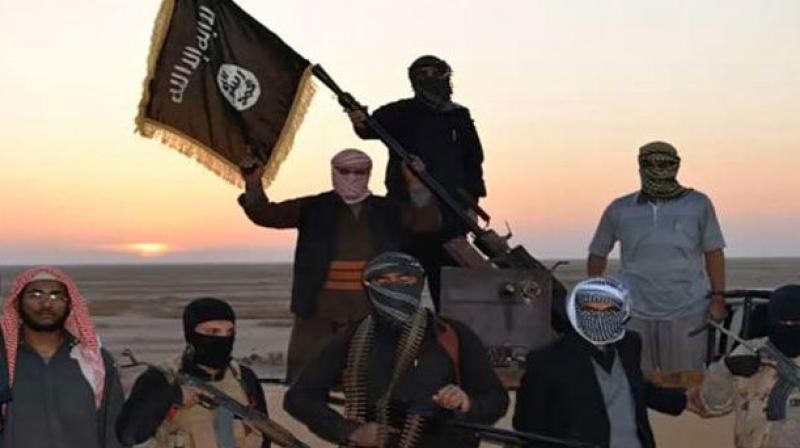View from Pakistan: Terrorists' weapons of choice
Over the past five years, up to 3,000 young Muslim recruits had gone to Syria and Iraq to fight for the ISIS.

From human bombs to lorries mowing down pedestrians on a crowded street to stabbing bystanders — the Islamic State group is using these weapons of choice as it intensifies its attacks in Europe. In less than three months, Britain alone has seen three such assaults claiming dozens of lives. This new method of inflicting terror has complicated the challenge for security agencies in the West. Days after the deadly explosion at an arena in Manchester, where American pop singer Ariana Grande had been performing, three attackers rammed their van into a weekend crowd at London Bridge and knifed people. The two incidents left dozens of people dead and wounded. The perpetrators were all radicals originating from different Muslim states. This also raises the question about the trajectory of radicalisation of those murderers. None of them seems to have been trained in terrorist camps abroad. Not surprisingly, all three attacks were claimed by the ISIS. Interestingly, the terrorists struck following the appearance of an ISIS poster on its website advocating the escalation of its terror offensive in Europe in Ramzan. The poster showed a white van as the weapon of choice. The latest surge in terror strikes has come when the IS is being driven out of Iraq and Syria.
But this was not the first time that the terrorists used a speeding van to kill pedestrians. The London Bridge attack echoed earlier carnages perpetrated by speeding vehicles last year in Nice where crowds were celebrating Bastille Day and at a Christmas market in Berlin. There was a similar attack on Westminster bridge in March when a middle-aged man drove his car through the crowd, and then attacked a police officer with a dagger.
This new weapon of choice of the ISIS requires minimum resources or expertise; at the same time, it carries with it an element of shock. What’s most worrisome for the Western security agencies is that it takes one or just a few radicalised men to plot such an assault. Although some of the recent attackers may have come under the radar of the British security services, it is hard to determine what was going on in their minds. It is certainly a nightmarish scenario for Britain where more than 3,000 people are under surveillance for holding radicalised views. In the case of the Manchester attack, there is evidence of the bomber having had direct contact with a militant organisation. Salman Abedi, the 22-year-old whose family hails from Libya, came into contact with the group during a visit to his homeland. However, there is no evidence yet of the London Bridge attackers having any kind of organisational affiliation with IS, although at least one of them, Khurram Butt, was reported for his radical Islamic views. Son of parents from Jhelum, Butt was born in Pakistan but brought up in Britain. Last month, he was spotted urging people not to participate in the general elections. But no one suspected him of planning to commit mass murder. The other attacker, a Moroccan, did not seem to have any association with radical activity. But there is more than just Internet propaganda that explains the trajectory of radicalisation of Muslim youth in Britain and other European countries. Indeed, the Internet plays an important role in terms of disseminating information and building organisation brands such as the ISIS, but in some cases, young Muslims are lured by real-world recruiters.
Perhaps the most serious terror threat stems from the returning jihadists to Europe. Over the past five years, up to 3,000 young Muslim recruits had gone to Syria and Iraq to fight for the ISIS. Many of them are returning home. This presents a serious threat to European countries, including Britain. Despite their strong intelligence network, it is hard for these countries to keep a check on each returnee and suspected radicalised Muslim to curb their capacity to influence others to join in jihadist activities. It is evident that the military defeat of the Islamic State in Iraq and Syria will not bring an end to global terrorism. In fact, there is a danger of intensified jihadist-inspired attacks in different parts of the world with the continuing civil war in West Asia taking a huge human toll. The short-sighted policies pursued by Western countries fuelling Islamophobia are not likely to help contain the menace of terrorism.
By arrangement with Dawn

